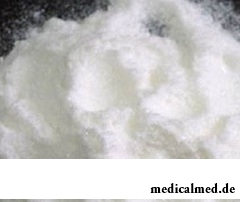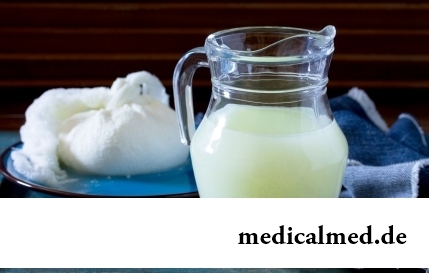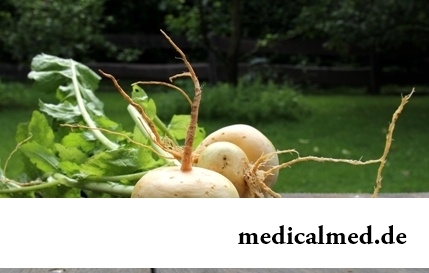





Sorbic acid
Description and characteristic
Sorbic acid (e200) – natural organic compound. On physical properties represents solid substance without color, almost not soluble in water. Preservative sorbic acid is widely applied in the food industry thanks to the ability to protect products from a mold and to increase their period of storage.
Acid for the first time in 1859 by mountain ash oil distillation from where received the name (in Latin of Sorbus "mountain ash" means) was emitted.
In the first half of the last century antimicrobic properties of acid were open. And in the mid-fifties its began to make commercially and to use as preservative. Today nutritional supplement e200 is received by means of condensation of a ketene with crotonic aldehyde with use of acid catalysts.
Properties of sorbic acid e200
Exclusive properties of natural food preservative sorbic acid are caused, first of all, by structure of chemical compound. E200 has the expressed antimicrobic properties which suppress development of causative organisms, in particular, of barmy mushrooms and a mold. When carrying out numerous experiments and scientific research of carcinogenic substances in it it was not revealed. In reasonable dosages sorbic acid e200 makes positive impact on a human body, promotes a detoxication of an organism and increases immunity.
Unfortunately, this preservative does not destroy microbes completely but only slows down their development therefore it is reasonable to add it to the raw materials which are not contaminated by microorganisms. Besides, some microorganisms have ability to assimilation and splitting of preservative.
Sorbic acid e200 shows the antimicrobic properties only at acidity below рН 6,5. Acid is chemically steady, but can easily disappear with water.
Use of sorbic acid
In food stuffs acid is applied in various quantities, but on average 30-300 g on 100 kg of a ready-made product.
Add preservative to the most various products. In the food industry sorbic acid is resolved more than in ten standards. Add it as individually, and as a part of other preservatives.
According to state standard specifications and TU sorbic acid e200 is included into the list of raw materials on such products: juice, mayonnaise, milk canned food, sauces, cheese products, olives, dried fruits, jams and jam, bakery products, wine, soft drinks, chocolate with a stuffing and candies, pastes, stuffings for pelmeni, fish. In preparation time of the test acid is almost not dissolved therefore does not slow down development of yeast, but in already ready pastries shows the anti-mold action.
Thanks to addition e200 the period of validity of drinks increases up to 30 days and more. As preservative at low temperatures is badly dissolved in water, for increase in firmness of soft drinks specialists prefer to use not acid, but aqueous solution of sorbate of sodium. With these purposes also sorbate of potassium which more is suitable for storage is eurysynusic.
In addition to the food industry, sorbic acid is also applied in the tobacco and cosmetic industry.
Harm of sorbic acid
In admissible doses (25 mg/kg) of harm from nutritional supplement e200 for a human body will not be. However at its use allergic reactions in the form of rashes and irritations on skin are possible.
Besides, harm of sorbic acid e200 consists in destruction of cyanocobalamine (B12 vitamin) in a human body. The lack of B12 vitamin, in turn, leads to various neurologic frustration and provokes death of nervous cells.
Nutritional supplement is allowed for use in Ukraine, Russia and some other countries, prohibited in Australia.
Stomatologists appeared relatively recently. In the 19th century to pull out painful teeth belonged to duties of the ordinary hairdresser.

Life of the modern child is extremely active and difficult. Information strain which is experienced by the school student and did not dream the pupil...
Section: Articles about health
For the last decades the diabetes mellitus of the second type became really world problem. The number of cases annually increases, and average age of patients for whom the illness is diagnosed, steadily decreases. Specialists consider that one of osno...
Section: Articles about health
Diapers for adults – individual one-time means of hygiene which in some situations is irreplaceable and from such situations any person is not insured. Though nobody perceives need of their use with enthusiasm, however without such means already problematic situation could be heavier....
Section: Articles about health
All parents are ready to what the baby often and pisat much. Since then, as the absorbing diapers strongly became current...
Section: Articles about health
What woman does not dream of a beautiful and thick hair? While physicians developed difficult schemes on hair transplant, in the industry of hairdresser's art a few years ago there was a sensation – methods of hair extension appeared. It would seem, dreams came true...
Section: Articles about health
About 10-15 years ago existence of the computer in the apartment of the Russian was considered as a rarity and office rooms were only at the first stage of equipment by these useful devices. Today practically in each house there is a computer (and often not one), and a regular user is already every our second compatriot. Convenience and efficiency of personal computers are undoubted, but the people working with them daily have to know also about health hazard which they can predstavlit...
Section: Articles about health
Condition of lips (their morbidity, outward) – one of indicators of health of the person. Peeling, dryness, pallor, and also трещ...
Section: Articles about health
Each woman has preferences in the field of use of those goods which help us to look good, feel young and effective. Besides: selection process of favourite perfume, shampoo or decorative cosmetics already lifts a spirit...
Section: Articles about health
Use of medicinal plants in therapy is urgent today, more than ever. The drugs made of curative herbs cannot replace completely modern synthetic drugs, but their use becomes frequent serious help in simplification of a course of many illnesses and improvement of quality of life of chronic patients....
Section: Articles about health
EKO, or extracorporal fertilization - a method of treatment of infertility which became the reason of a set broken mines in due time...
Section: Articles about health
Season of activity of viral infections in the heat. Everyone can get sick, but probability of this unpleasant event it is possible and it is necessary to minimize. There is a number of rules, following to which will help or to avoid absolutely infection with flu or a SARS, or to have an illness...
Section: Articles about health
The healthy nutrition is the invariable principle of health and good health for long years of the woman. Nevertheless, in a diet at each stage of life there are the features allowing to support an organism by those substances which are most necessary for it at present. Eating according to them, the woman will be able to feel vigorous and strong, and also to adapt to changes in an organism so that they allowed it to lead active lifestyle at any age....
Section: Articles about health
Beauty shop – the place which is associated only with positive emotions: joy, pleasure, relaxation. However visit of salon where work with biological material of clients, not always harmlessly is conducted. Today more than 100 pathogenic microorganisms who can catch in beauty shop including deadly to health are known....
Section: Articles about health
Aging — natural and inevitable process. Over time our skin loses elasticity, on it saggings, a face form теря are formed...
Section: Articles about health
Milk and products of its processing by right occupy one of the main places in a diet of the modern person. They contain proteins, necessary for normal life activity, fats, vitamins and microelements, and are an important part of various medical diets....
Section: Articles about health
It is known that the person for 80% consists of water which participates in all processes of an organism. The person loses liquid daily – as a result of sweating, breath, an urination, and its insufficient completion due to various reasons can lead to dehydration of varying severity. Dehydration (dehydration) occurs already in case of loss of liquid in number of 1% of body weight and can result both in easy thirst, and by the death. In time to notice signs обезвож...
Section: Articles about health
Eyes – one of the most vulnerable areas on a face therefore age changes concern them first of all. Whether it is possible to keep a pier...
Section: Articles about health
You are office worker, the driver, the fan of winter sports or do not think of life without bicycle? You lead a slow-moving life and you move on the city only on the car? You have no constant partner and you do not love the protected sex? Attention! You one...
Section: Articles about health
Musicotherapy – a treatment method which caused and causes a set of a controversy concerning its efficiency. However the facts are relentless: during the numerous researches curative impact of music on an organism was scientifically confirmed. Since then in a number of the countries the technique is included complex therapy of diseases of cardiovascular and respiratory system, dorsodynias and a backbone, psychosomatic disturbances and many other illnesses. The musicotherapy in a pedi is especially widely applied...
Section: Articles about health
The brain of the person is studied not one hundred years, but the quantity of the riddles connected with this body increases rather, than reducing...
Section: Articles about health
Frosty air, fresh wind and easy snowball at most of Russians are associated with cheerfulness, health and cheerful entertainments on which our winter is so generous. But, unfortunately, cold season sometimes brings also troubles with health. It is not about a season...
Section: Articles about health
About influence of fasting days on an organism it is told much – both about advantages, and about shortcomings. It is considered that fasting day in the form of a short-term monodiet is useful, promoting effective removal of slags from an organism whereas irregular, excessively long, spontaneous fasting days lead only to deterioration in health. How to derive benefit from the sparing diet and not to do much harm to itself? Let's consider the main advantages and shortcomings of fasting days and their influence on an org...
Section: Articles about health
Turnip, radish, horse-radish – once these and other products enjoyed wide popularity at our ancestors, being not only food, N...
Section: Articles about health
Physical activity is necessary for normal functioning of a human body. At a lack of the movement joints cease to function, muscles atrophy, cardiovascular activity is broken and the metabolism worsens. Modern городс...
Section: Articles about health
Aspirin (acetylsalicylic acid) – one of those drugs which are known literally to all. It is available in each home first-aid kit, and many accept it at the first signs of an indisposition, often without having a fair idea of properties and therapeutic effect of drug. Meanwhile, impact of aspirin on a human body is very various, and is not always favorable. About it it is important to foreknow, in order to avoid emergence of problems with health....
Section: Articles about health


